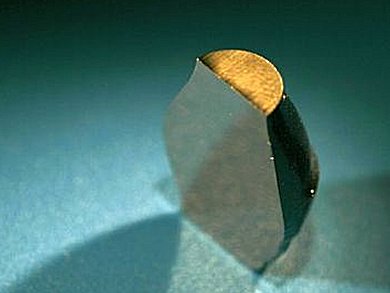Ethylene (ethene) always contains traces of acetylene (ethine), because both substances are obtained from crude oil and are not easily separated. Unless acetylene is first converted to ethylene by the attachment of two hydrogen atoms in the presence of palladium, the resulting plastic is of poor quality.
Worldwide production of polyethylene amounts to 80 million tonnes each year, thus the costs of acetylene conversion add up to a considerable sum. Working with the Ludwig Maximilians Universität Munich and Forschungszentrum Jülich, scientists from Dresden’s Max Planck Institute for Chemical Physics of Solids and the Fritz Haber Institute of the Max Planck Society in Berlin, Germany, developed a catalyst using iron and aluminium that works just as well as the conventional palladium catalyst, but costs much less.
The fact that this is an intermetallic compound and not an alloy is decisive, partly because the metals do not mix haphazardly as alloys do, but form highly ordered crystal structures. In the case of the palladium-gallium compound, every palladium atom in the crystal structure is surrounded exclusively by catalytically inactive gallium atoms. This means that the individual catalytic sites are kept strictly separate from each other.
The aluminium-iron and palladium-gallium compounds are similar to one another in the aspects of how to distribute electrons in the material, their energy and of how they influence the binding of acetylene molecules. The iron-aluminium compound delivers precisely two hydrogen atoms to the acetylene molecules just as reliably as the palladium-gallium catalyst.
Before the new catalyst can be used to reduce the costs of polyethylene production, it must prove itself in industrial scale applications. If it passes that test, it could prove its value as a selective hydrogen catalyst in the production of other synthetic materials.
© MPI for Chemical Physics of Solids
- Al13Fe4 as a low-cost alternative for palladium in heterogeneous hydrogenation,
Marc Armbrüster, Kirill Kovnir, Matthias Friedrich, Detre Teschner, Gregor Wowsnick, Michael Hahne, Peter Gille, Lászlo Szentmiklósi, Michael Feuerbacher, Marc Heggen, Frank Girgsdies, Dirk Rosenthal, Robert Schlögl, Yuri Grin,
Nature Mat. 2012.
DOI: 10.1038/nmat3347




